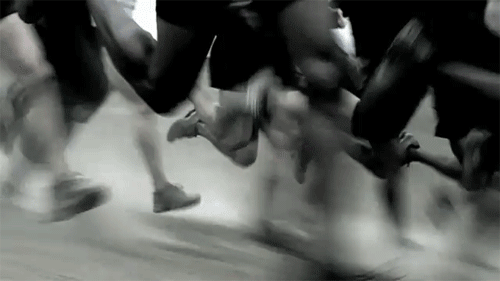
On May 12, 13 and 14th, I was privileged to have the opportunity to attend this gathering for those who have been affected and care partners. There were over 300 people in attendance, 45 of them being diagnosed with FTD. For me, as an alum of this club no-one wants to be in, the best part was meeting up with so many virtual friends that I have made as a result of the bastard disease. (Ha! Take that FTD!)
I will share some of the highlights that jumped out to me and information from some of the presentations, but what struck me the most were the meetings with people, most of whom I had only “met” virtually before. I was touched by the immediate friendship and love that happened among people who, if it were not for Facebook and FTD, would never have come into contact at all. But more about that later.
In his Welcome Address to the Conference, Jary Larson, the AFTD Board Chair, spoke of his personal connection to FTD and about inspiration, advocacy, and spreading awareness. But by far, the most powerful illustration of all these attributes was offered by Susan Suchan.  Susan is diagnosed with the PPA variant of FTD and is a tireless and charismatic champion of the cause. You can see more of Susan’s courageous and powerful story in “SUSAN’S STORY” but for now, take it from me that she is the funny, generous and staunch advocate that we all need. I know that many people gain comfort from her courage and the fact that she is willing to put herself out there and show the world what FTD is, what it does to people and their families and show that dementia of any kind, but especially FTD, changes a person’s abilities, but not who they are.
Susan is diagnosed with the PPA variant of FTD and is a tireless and charismatic champion of the cause. You can see more of Susan’s courageous and powerful story in “SUSAN’S STORY” but for now, take it from me that she is the funny, generous and staunch advocate that we all need. I know that many people gain comfort from her courage and the fact that she is willing to put herself out there and show the world what FTD is, what it does to people and their families and show that dementia of any kind, but especially FTD, changes a person’s abilities, but not who they are.
After the opening, there were two excellent presentations by physicians –an overview of the various FTD disorders and subtypes by Dr Alvin Holm, followed by a presentation of advances in research and what is/will be happening to find out why and how the object of our misery comes about. Dr David Knopman spoke of small advances being made, but it is agonizingly slow progress, with clinical trials taking place over the next five years in longitudinal genetic studies.
One of the most exciting things that followed the medical information was the announcement by Dianna Wheaton from the the Association for Frontotemporal Degeneration – AFTD, of the implementation of an FTD Disorders Registry. This is a chance to tell your story! The Registry needs feedback via research but mainly from anecdotal “storytelling” from people like you which will enable the collection of data to contribute to further research. The Registry will pull together all the scattered pieces of information to provide a critical tool in research, funding and demographic data. The Registry will advance the science towards a cure, and your story will become part of the movement. You can join the Registry HERE and follow them on social media Facebook and Twitter
Following Dianna’s presentation, there was a Q and A session with the panel of physicians, most of which centered around genetic research and potential treatments. People were really interested in these things obviously, but sadly, there were few definitive answers and many “we don’t know”s. The good news is that more funding seems to finally be coming our way and there is great hope for progress, albeit slow.
During these presentations there were separate concurrent sessions for diagnosed people to attend. The topic was “Building Bridges”, presented by Matt Sharp and Teresa Webb from the AFTD. By all accounts, it was very informative and engaging.
During a nice boxed lunch, there was opportunity for networking and socializing with everyone that you hadn’t yet connected with. I had the privilege of meeting up with Susan Suchan and some other people who actually have FTD. They are such a shining example of never giving up, and working diligently to ensure that the word gets out. They fight the good fight for everyone else and never cease to amaze me with their good humor, humility and courage. It was so good to meet up with people I had only ever seen on Facebook and hear their stories in person. I also reconnected with a couple of old friends, both of whom I found through FTD – Geri Hall and Rebekah Wilson, who were presenting in the breakout sessions at the Conference. Geri is a renowned expert on FTD, although she is very humble and modest about it. She is a PhD and an Advanced Practice Nurse and Clinical Nurse Specialist at Banner Alzheimer’s Institute in Phoenix. Among other things, Geri has developed many programs of care strategies for people with dementia and sees people with complex behavioral needs. Rebekah is a Social Worker who works to provide education regarding dementia and dementia care standards. She has devoted much of her career to improving the quality of life for those with dementia and their care partners and in hospice support. I first came to meet Geri and Rebekah when they co-facilitated FTD Support groups here in Phoenix. They were immensely helpful to me and many others during times of crisis and in helping manage behaviors and placement issues.
When we returned from the break, Susan Dickinson, the Executive Director for the AFTD, presented some information about upcoming events and news regarding funding and awareness. In August of this year, the 10th Annual International Meeting for Frontotemporal Disorders will take place in Munich, Germany. There will be research applications, advocacy and biomarkers initiatives. Raising awareness is key here too, and about 10 countries will be represented. World Awareness Week will take place this year from September 25 through October 2nd, with many Food For Thought events taking place. This year, there has also been the “#whoilove” campaign that took place in February, where several families, caregivers and diagnosed persons made short videos about their experiences and posted them on the AFTD website to encourage donation and awareness. Susan also spoke of the increasing number of support groups now facilitated by the AFTD and volunteers, both phone and “Zoom” online groups. 12 new groups were started in 2016, making 32 in all, with 41 group facilitators. the AFTD has been busy providing training in group dynamics, facilitation skills and current information. The focus is on high-quality and supporting challenges. There is also a helpline, email contact address and lots of information on their website http://www.theaftd.org/
Dr Alvin Holm presented a Care Paradigm for people with FTD, one which includes disease-specific therapies, wellness management, in addition to environmental support. Dr. Holm’s described the physical, caregiver and expectational support needed for persons with FTD very accurately and with compassion and knowledge. One of the biggest takeaways of the day for me was when he said-
Environmental support is to someone with FTD what a prosthetic limb is to an amputee
The four breakout sessions for the afternoon were:

- “Supporting Each Other” – specifically for diagnosed persons
- “Movement Disorders” – for people interested in PSP, CBD or FTD/ALS
- “Language Disorders” for people interested in PPA
- “Behavior Disorders” – positive approaches to behavior changes at home and in the community
- “Residential and Facility Care” – for people considering residential care and how to promote a positive experience
- “Comfort Care and End of Life Considerations” for issues in advanced FTD, addressing end of life decisions and the value of hospice care.
When the groups reconvened in the main room, there was a presentation by Dr Darby Morhardt and a panel discussion on the various aspects of the impact of FTD on families. Two of the panel members were spouses of people with FTD and parents of younger children.There was a very moving video presentation made by the panel member’s children, discussing how their respective mother’s and father’s FTD had affected them over the last few years.
Next, Charlene Martin-Lille shared some techniques and practical tools for managing stress during your FTD caregiving. Charlene teaches classes in resiliency – stress management, mindfulness and positive psychology at the Mayo Clinic in Rochester, MN. She often works with and advocates for those with dementia and their care partners.

The keynote speaker for the conference was Nancy Carlson – a writer and illustrator of children’s books, who began a blog about her journey with her husband Barry as he battles FTD. You can read Nancy’s blog here. Nancy has written and illustrated more than 60 children’s books since 1979. Her creativity is one of the things that helps her cope with so much loss in her life.
The conference provided a wealth of information in the lobby area for volunteering, regional information, grassroots events and group facilitators. Following the closing address by Jary Larson and Susan Suchan (more tears!), there was a lovely dinner reception hosted by the AFTD.
The conference was such a great opportunity for meeting, networking and socializing with people who truly “get it”.
Feedback on the conference was requested and I hope that the AFTD will use the comments and evaluations to make next year’s conference in Baltimore equally, if not more, engaging.
This week, I will work on getting the Conference program and resources into a pdf format, so that I can email it to you and you can explore and enjoy. There was lots of information and quite a few handy “checklists” that will be useful in various aspects of caregiving.
As I said at the beginning of this post, one of the greatest things about this conference was getting to meet so many people who had previously only been out there in the ether. There was a terrific sense of camaraderie and friendship almost immediately, largely due to our shared experiences, sense of humor and love of wine. It was an honor and privilege to meet you all and I hope to continue these friendships as we all travel this path, even though we are in different places, literally and along the FTD journey. Thank you so much to all, you have enriched my life more than you will ever know x






























